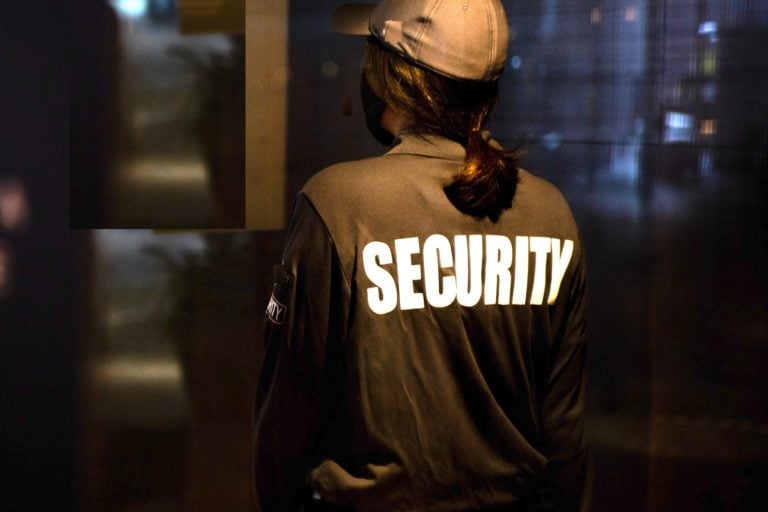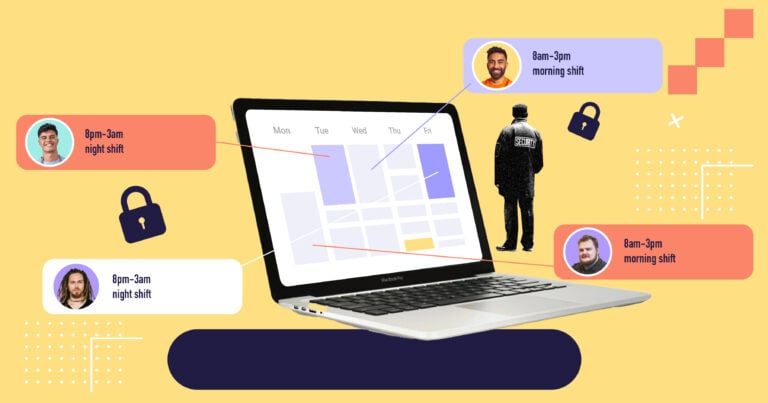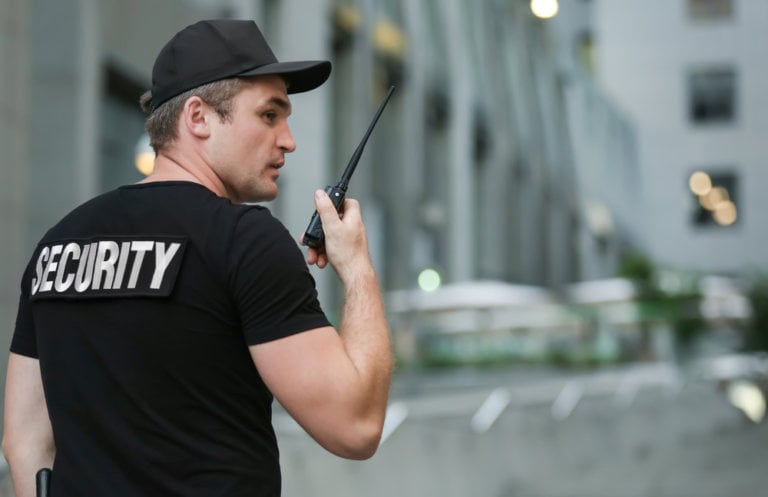When it comes to the security, safety and compliance are everything. Knowing what your guards can and cannot do could be the difference between life and death. We have put together some tips that will help your security guards, armed or unarmed, stay safe and compliant.
Safety and compliance go hand in hand in the world of security – but you already knew that.
What you might not have realized is that these two crucial factors extend to all security guards, regardless of whether or not they are armed.
There are some important questions to answer:
- What are the problems that come with arming security guards?
- What can companies do to alleviate these problems?
- How do I keep myself up to date with the latest security rules and regulations?
Read on, cause we’ve got you covered.
Tips to Keep Armed Security Safe and Compliant
It’s worth noting that the following three tips are possibly the most important because they are all connected – they strictly apply to armed security guards and will ensure that your company is maintaining armed security policy and keeping your employees safe.
Follow the Training Requirements in Your State
Ideally, companies should be well-versed in the training requirements of the state they are located in. If unsure though, companies should resort to the strictest of standards – which can be found in The California Bureau of Security and Investigative Services (BSIS).
Choose The Right Weapons
Managers need to ensure that the equipment their guards use is up to current regulations. And it’s not just firearms that security guards can use to defend themselves. Different levels of security require different kinds of weapons (tear gas, batons, stun guns, tasers) and so it’s important to select carefully for each job.
Only Use Armed Security If You Really Need It
There is always a risk that firearms in the wrong (and even right) hands can lead to all kinds of accidents. It is crucial for companies to think hard if they require this level of security. Most will agree that armed security is required in industries such as government, finance and construction.
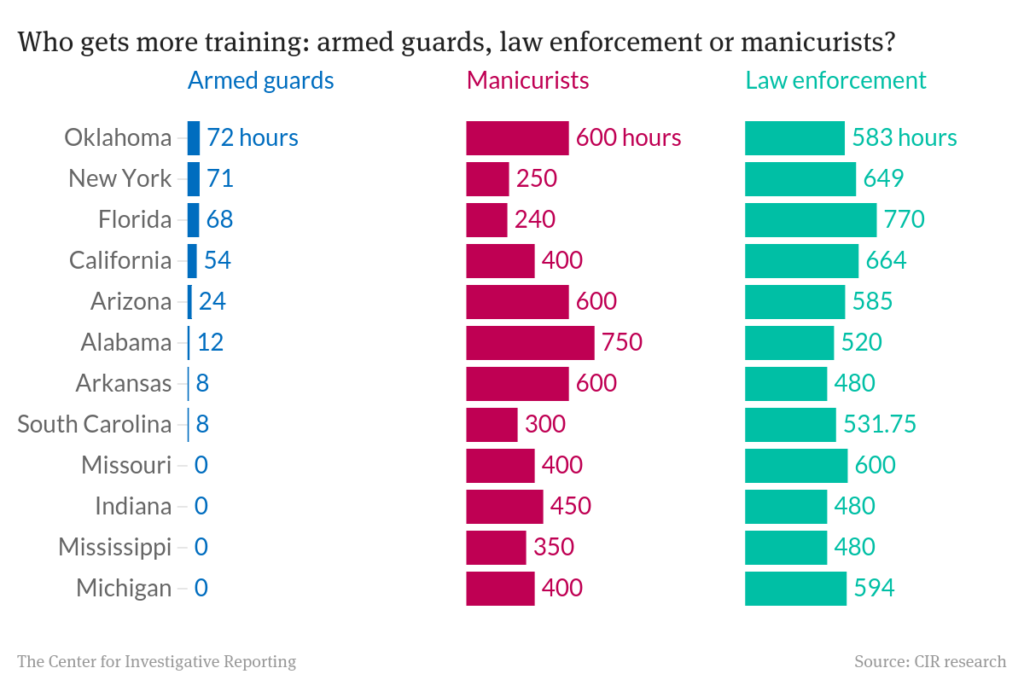
Tips To Keep All Security Guards Safe And Compliant
The following tips apply to all security guards, regardless of whether or not they are armed.
Complete Detailed Security Reports
For security policy, accountability is fundamental. Every time an armed officer is required to use their firearm, their employer should always be prepared for the repercussions.
A useful way to stay on top of this is by always completing detailed security reports. If a security guard finds themselves in legal trouble after misusing their firearm, then detailed reports help in their defense.
Digital Communication is Key
Despite receiving appropriate training, documentation and equipment, accidents and lawsuits can still rear their ugly heads. If digital communication is implemented and used in the right way, guards can be alerted more clearly. Armed security guards will have more time to prepare for what kind of jobs they are doing, when they need to be armed and when not to.
💡 Pro tip:
Read our guide to the best apps for security guards to see how digital tools can help your team stay connected, manage shifts easily, and enhance overall security operations.
Updating COVID-19 Safety Protocol
Due to security guards often being in close proximity to large crowds, companies need to ensure that their security forces are staying up to date with the latest pandemic health and safety protocol. For example, they need to know when and when not to wear masks and how to sterilize shared equipment.
All Guards Should Undergo Deescalation Training
Many companies overlook how important it is for armed security guards to know when and when not to use their weapons. It is recommended that officers regularly relearn how to avoid using their firearms or use force unless they absolutely need to. This is formally known as de-escalation training.
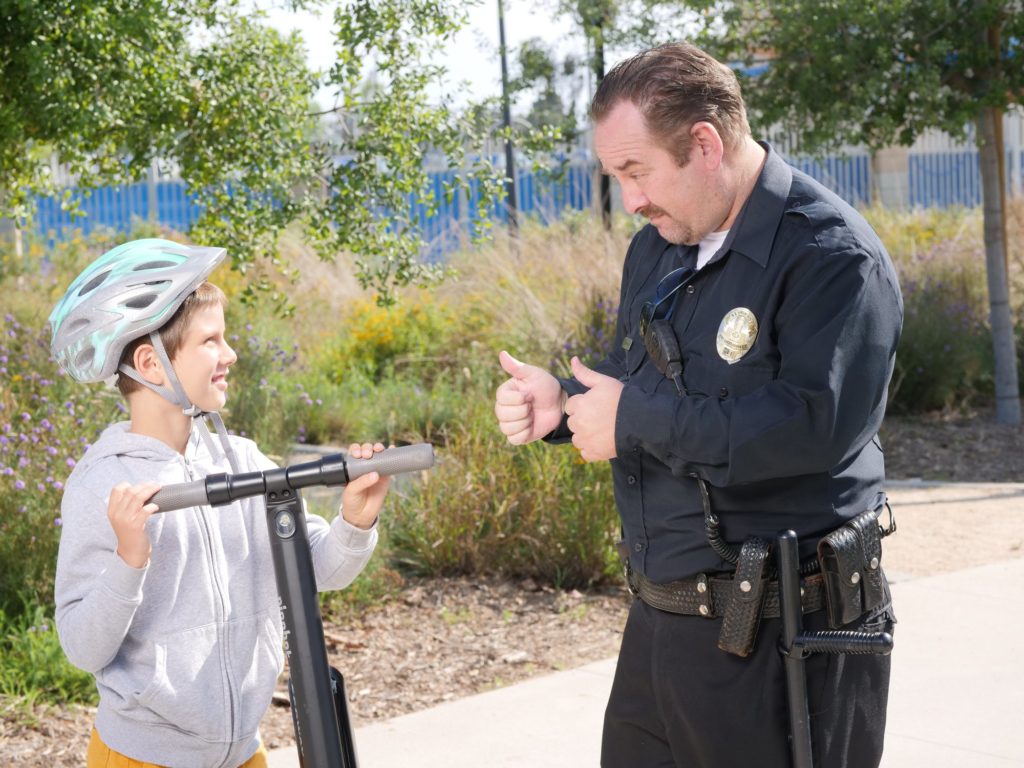
Create To-Do Lists
There are a lot of responsibilities that come with being a security guard. All security team members need to know what they are doing at all times. Who is patrolling the premises? Who is stationed at clear entrances and exits? Putting together clear to-do lists with the agency you work with is vital.
Use The Right Agency For Your Company
Companies need reassurance that the agency they choose will provide appropriate support for any situation. Even when there are no issues, being able to contact customer support can always help.
Learn How To Budget
Companies can learn how to get the most out of their security teams without being stretched too thin. You just need to know how to budget. Once you have reviewed your business model, you may be able to protect the most high-risk areas of your site at peak times, without breaking the bank.
Keep Your Security Guard Protected
Make sure that your guards have the relevant body armor for the specific job. Check the levels of each vest assigned by the National Institute of Justice, as well as which weapons they are effective against.
Both armed and unarmed guards may also need to wear bulletproof vests, stab vests, spike protection, or anti-slash gloves, depending on the level of risk. These can also prevent self-caused accidents. Make sure to regularly check and request protective gear repairs/replacements in case of wear and tear.
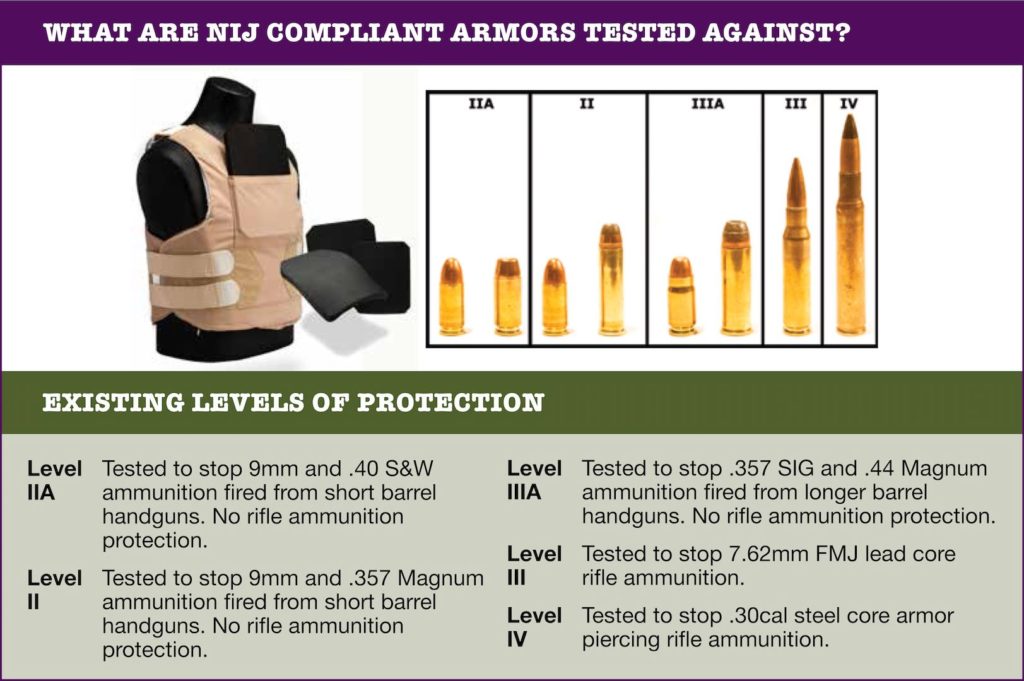
Stay Aware Of Your Surroundings
Security guards should be made aware of all emergency exits, patrol routes of other guards and even possible hiding places. Guards must also account for over-familiarity, preparing themselves for all eventualities. These possibilities should be laid out in some kind of easily accessible manual.
Maintain Shape and Fitness
Seeing that armed forces may need to perform agile movements and techniques to use their weapons, they should make an effort to stay fit. Guards can exercise outside of work hours and can also change their habits while on the job. These include cutting down on snacks and walking more patrols than usual.
While these tips will send your security guards on the safe and compliant path, you need to figure out how to implement these tips. Thankfully, there are tools and software that will help put these guidelines into practice.
Software That Can Improve Security Safety & Compliance
Connecteam is the perfect solution for security companies looking to make their guards safe and compliant. Whether it be through checklists, reports, onboarding, scheduling or time clock app with GPS, you will be able to keep up to date with your security guards progress and accountability, call and text-free. Connecteam’s all-in-one features cover all armed security bases.
- Keep security guards up to date with when and where they are expected to be armed. Set hours and drag and drop shifts accordingly. You can even add notes to employees’ schedules, so that guards will know what they need to bring with them and when. Employees can check their shifts wherever they are, whenever they choose and on all devices. You might want to read our guide on the best security guard scheduling software solutions to optimize your team’s efficiency and organization.
- Create digitized checklists and forms for your security guards to maximize organization and efficiency. For example, employees can fill out checklists covering all necessary safety procedures before they even start their shift. Workers can fill in forms to report incidents, ensuring that there is no time wasted for information to get from employee to manager. This feature also eliminates handwriting readability issues and everything is clearly documented.

- With Connecteam, managers can upload all essential resources to create detailed knowledge bases for employees, both old and new. Training manuals, weapon manuals, company policies, and state regulations can all be uploaded with the click of a button. And employees have full access to all of this, being able to download everything at any time – anywhere.
- Connecteam’s chat feature allows employees and managers to have direct contact with each other, either 1:1 or in groups. Security guards can be instantly informed of the best routes to take, warnings of accidents/incidents, and latest local laws.
- Connecteam’s geofencing helps managers know exactly where their employees are clocking in and out from (Connecteam’s integration with QuickBooks Online and Gusto also ensures accurate and smooth payroll).
Improve Workplace Compliance Today
Use Connecteam’s all-in-one platform to ensure compliance, streamline processes, and save time.
Frequently Asked Questions About Armed Security
What Are The Challenges That Come With Armed Security Guards?
According to a study carried out by Pew Charitable Trusts, a staggering 41 states have issued licenses for armed security. However, the requirements for these licenses vary considerably from state to state.
Security guards are technically first responders – not enforcers of the law.
This puts extra emphasis on what they can and can not do, from a legal point of view, inevitably leading to confusion when it comes to what an armed officer can do in any given situation.
Private security guards are often in scenarios where they have to use force of some kind. As a result, their lack of legal protection can cause problems, especially if they are unaware that they are applying too much force. Lawsuits can take their toll on security companies, not just financially speaking, but also in terms of reputation.
In the gravest of circumstances, inadequate training can lead to tragic incidents. According to a study conducted by Harvard T.H. Chan School of Public Health, the rate of serious injuries caused by security guards rose by 50% from 2001 to 2014. Not to mention the fact that security guards can also endanger themselves.
But these problems can easily be prevented. If companies simply change some of their poor habits, these issues will quickly become a thing of the past.
What should definitely be included in armed security guard training?
While security guard training is full of essential courses, there are numerous other important things that armed security guards need to learn, and this is too much for the usually small number of additional hours of training added. Besides learning how to handle and fire, background checks are required, as well as physical and psychological tests.
As previously mentioned, de-escalation training is an important tool that should be reinforced in all armed guard courses. Of course, training programs vary from state to state. But this should be the bare minimum requirement.
The Bottom Line on Security Guards
As you can see, there isn’t a definitive code on how to make security guards safe and compliant. Due to the high pressure situations they often find themselves in, there is a higher urgency for security guards to make difficult decisions.
With that said, there are numerous ways that security training institutions and companies can clamp down on the negligible handling of firearms. The tips provided are definitely a good place to start.
Combine this with a software that allows all of these tips to be implemented seamlessly into your daily operations, and your armed security guards will reap the benefits soon enough.

